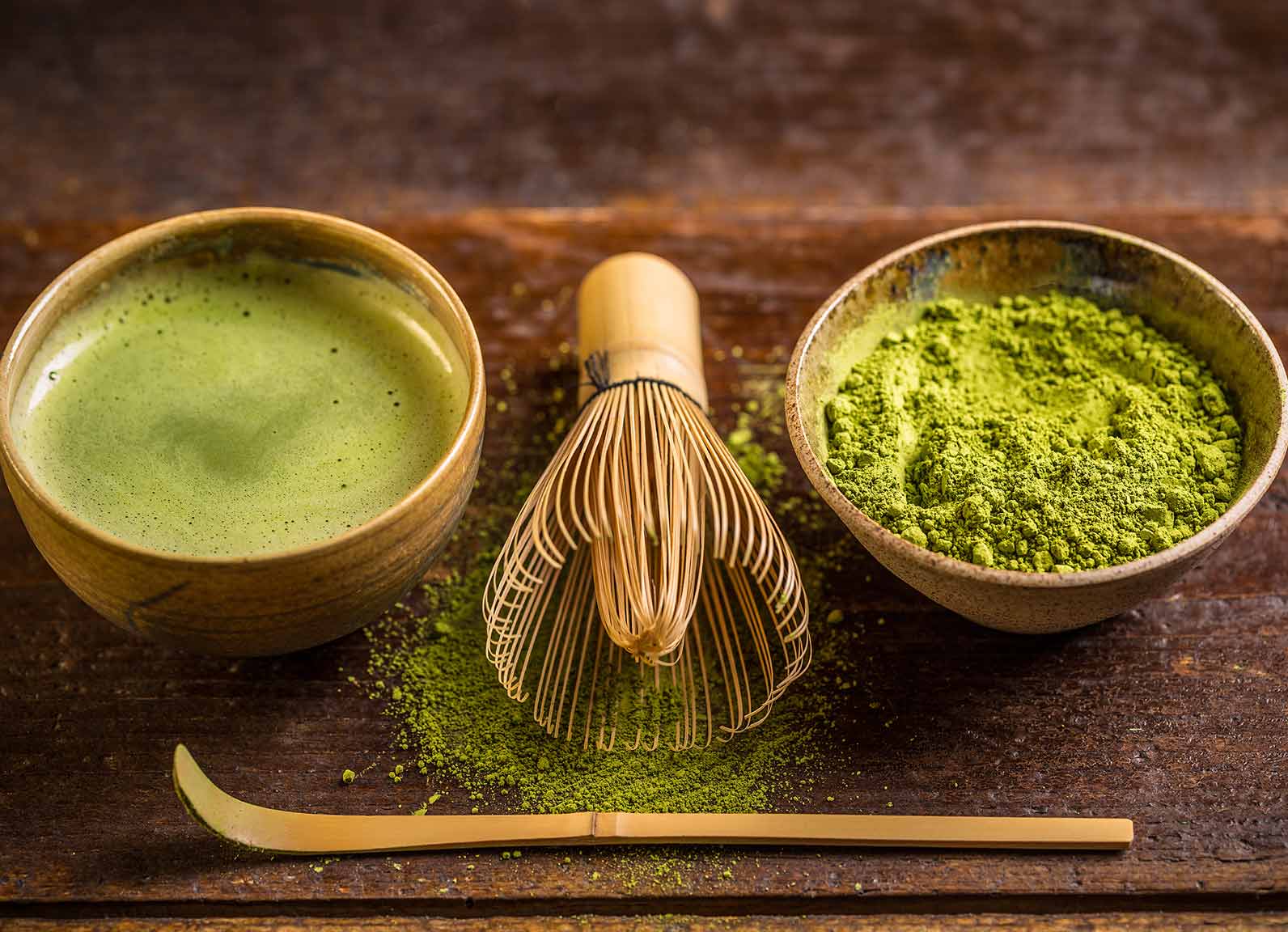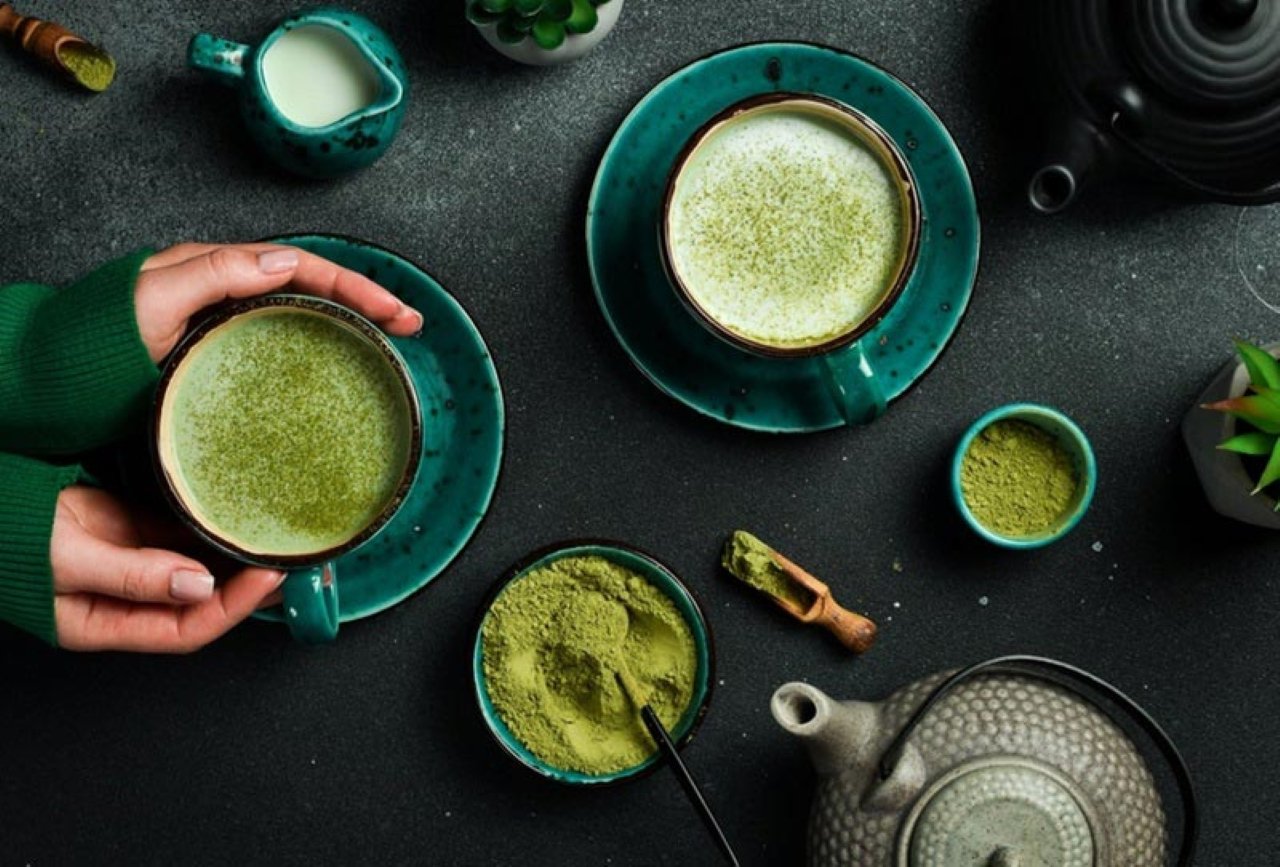Discover the myriad benefits of Matcha and why you should incorporate it into your daily routine:
1. Abundant in Antioxidants
Matcha is a powerhouse of catechins, a type of plant compound found in tea that acts as a natural antioxidant. It neutralizes harmful free radicals, which can cause cellular damage and lead to chronic illnesses.
The unique cultivation method of shading tea plants before harvest results in lower catechin levels compared to other green teas. However, when dissolved in water, Matcha delivers up to three times the catechin content.
Including Matcha in your diet can boost your antioxidant intake, reducing cellular damage and potentially preventing various chronic diseases.

2. Liver Support
The liver is pivotal for overall health, playing a central role in detoxifying, metabolizing drugs, and processing nutrients.
A 2015 review published in the US National Library of Medicine, encompassing 15 studies, revealed that green tea consumption is associated with a reduced risk of liver disease.
However, in 2020, experts cautioned that while Matcha may benefit individuals with non-alcoholic fatty liver disease (NAFLD) by lowering liver enzymes, it could potentially increase enzymes in those without NAFLD.
While studies indicate that Matcha may prevent liver damage and reduce the risk of liver disease, further research is needed to understand its broader impact on the general population.
3. Brain Function Boost
Research suggests that certain compounds in Matcha may enhance brain function. A study involving 23 individuals assessed their performance on a series of tasks designed to measure brain function.
Participants consumed either Matcha tea or a bar containing 4g of Matcha, while the control group received tea or a placebo bar.
Those who consumed Matcha exhibited improvements in attention, reaction time, and memory compared to the placebo group.
Another small study published in the US National Library of Medicine in 2014 found that consuming 2g of green tea powder daily for two months enhanced brain function in older adults.
Matcha contains higher concentrations of caffeine than green tea, ranging from 19-44 mg/g, depending on the variety, brand, and preparation method. Green tea typically contains 11-25 mg/g.
Additionally, Matcha contains L-theanine, which promotes alertness and helps prevent the energy crash sometimes associated with caffeine consumption.

4. Cancer Prevention Potential
Matcha contains compounds that have shown promise in cancer prevention, both in laboratory and animal studies.
It is particularly rich in epigallocatechin-3-gallate (EGCG), a catechin with potential potent anticancer properties.
Studies published in the US National Library of Medicine in 2018 and 2022 suggest that EGCG may aid in preventing certain types of cancer, although more extensive research is warranted.
5. Weight Management
Green tea is renowned for its weight loss properties and is often included in dietary supplements.
A 2020 review published in the US National Library of Medicine concluded that, in conjunction with dietary and exercise interventions, consuming up to 500 mg of green tea daily for 12 weeks could reduce body mass index.
While most studies focus on green tea, Matcha, derived from the same plant, contains similar compounds.
A Word of Caution
While Matcha offers numerous health benefits, moderation is key. Matcha contains higher levels of caffeine than green tea, and excessive consumption may lead to increased heart rate, as indicated by a 2022 study in the US National Library of Medicine.
Some scientists suggest that high catechin intake could potentially cause liver issues, although they note that this is unlikely when consumed as a food or beverage, as per a 2018 study in the same library.
Drinking Matcha may also increase exposure to contaminants like pesticides, chemicals, and arsenic present in the soil where the tea plants are grown.
According to a 2018 study in the US National Library of Medicine, 338mg of catechins and EGCG per day is considered safe for adult consumption. This amount is roughly equivalent to 4g of Matcha or two heaping teaspoons.
However, the maximum tolerable amount of Matcha powder may vary among individuals. To stay on the safe side, consume Matcha in moderation and opt for certified organic Matcha to minimize the risk of ingesting impurities.



































